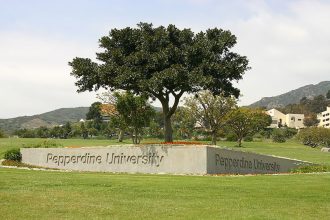Introduction
The Technology, Entertainment, Media, and Sports (TEMS) sector
in 2024 stood at the crossroad of innovation, regulation, and
industry evolution. Across the globe and within Nigeria,
significant developments defined the year, including the adoption
of landmark international treaties, transformative court rulings,
and the strategic restructuring of key institutions. Regulatory
bodies and corporate players alike embraced the challenge of
navigating complex landscapes and addressing issues such as data
protection, intellectual property, competition, and governance.
From the Supreme Court of Nigeria’s decision to reshape the
gaming industry in Nigeria to the global AI treaty and FIFA’s
transfer rule reform, the year was marked by a convergence of local
and international efforts to foster accountability, inclusivity,
and sustainability within the sector. This roundup captures the
year’s pivotal moments, reflecting the dynamic interplay of
innovation and regulation while setting the stage for emerging
trends in 2025.
Key Highlights – Technology and Telecommunications
NCC Orders Telcos to Bar Subscribers Not Linked to
NIN
In February 2024, the Nigerian Communications Commission (NCC)
mandated telecom operators to disconnect subscribers who failed to
link their SIM cards to their National Identification Numbers
(NIN). This policy aimed to strengthen national security, curb
identity theft, and enhance the integrity of Nigeria’s digital
ecosystem. By enforcing the NIN-SIM linkage, NCC sought to reduce
fraudulent activities and align telecom regulations with global
digital identity trends. This directive was a significant step
toward creating a harmonized digital economy, ensuring robust data
protection, and safeguarding the integrity of telecommunications
networks.
Key Publications of NDPC: Strategic Roadmap, Guidance
Notices and Implementation Directive
Notable regulatory advancements in the technology sector include
Nigeria Data Protection Commission’s (the “NDPC”)
publication of its strategic roadmap and action plan in February
2024, the Guidance Notice on the Registration of Data Controllers
and Data Processors of Major Importance (DCPMIs) and the draft
Nigeria Data Protection Act General Application and Implementation
Directive (GAID) 2024. The strategic roadmap and action plan
provides a structured approach to implementing the Nigeria Data
Protection Act (NDPA), while the Guidance Notice on DCPMIs ensures
that major data controllers and processors are properly registered
and monitored. GAID clarifies the application of the NDPA,
addressing ambiguities and ensuring consistent implementation.
These measures were introduced to cure defects such as regulatory
uncertainty, weak enforcement mechanisms, and inadequate oversight
of entities handling large volumes of personal data. Another
significant development was the launch of NDPC’s registration
portal, marking a significant step toward streamlining compliance
processes. These initiatives further emphasize NDPC’s
commitment to the effective implementation of the NDPA and its
ongoing efforts to enhance awareness and ensure compliance within
the industry.
NCC Suspends Licensing of Mobile Virtual Network
Operators (MVNOs)
In May 2024, NCC announced an indefinite suspension of MVNO
licensing, citing the need to assess market saturation and
competition dynamics. MVNOs, introduced in 2022, were expected to
expand telecom penetration, particularly in underserved regions.
However, after issuing over 43 licenses, NCC halted new approvals
to prevent an unsustainable industry landscape. The decision
reflects broader concerns about market stability and fair
competition, as existing telecom giants dominate the sector. While
the review may lead to stricter regulatory frameworks, the pause
could also slow digital inclusion efforts, particularly in rural
areas where MVNOs were positioned to bridge connectivity gaps.
During the course of the year, our team analysed the move by NCC
and our thoughts can be found in this article – NIGERIAN COMMUNICATIONS COMMISSION SUSPENDS
LICENSING OF MOBILE VIRTUAL NETWORK OPERATORS (MVNOS)
EU, US, UK Sign the First Legally Binding AI
Convention
In May 2024, the European Union, United States, and United
Kingdom signed the world’s first legally binding international
Artificial Intelligence (AI) treaty, setting a precedent for global
AI regulation.
The convention focuses on balancing innovation with
accountability, ensuring AI aligns with human rights principles and
ethical standards. This development signals a major shift in global
AI governance, with significant implications for Nigerian AI
startups, financial services, and cybersecurity. As AI-driven
automation expands in sectors like fintech, healthcare, and
entertainment, local regulatory bodies are likely to introduce
compliance frameworks mirroring international AI policies in the
near future. The treaty also increases the likelihood of global
tech firms adjusting their AI operations to align with stricter
ethical standards, impacting businesses leveraging AI-generated
content, predictive analytics, and data-driven marketing.
NDPC and FCCPC Fine Fidelity Bank and Meta for Data
Privacy Violations
In August 2024, Nigerian regulators made bold moves in data
privacy enforcement, with NDPC fining Fidelity Bank for violating
data protection laws, and the Federal Competition and Consumer
Protection Commission (FCCPC) imposing a $220 million penalty on
Meta for breaching Nigerian users’ privacy rights. The
sanctions reflect Nigeria’s growing regulatory stance on
consumer data rights and the government’s commitment to holding
corporations accountable for data misuse. It also highlights the
rising legal risks for companies that fail to secure consumer data
and sets a new benchmark for enforcement actions in Nigeria’s
data privacy landscape.
Cybercrimes (Prohibition, Prevention, Etc.) (Amendment)
Act2024
The Maiden Cybercrimes (Prohibition, Prevention, Etc.) Act 2015
(the “Act”) was amended within the year, introducing key
updates within the sector. Highlights of the Act include but not
limited to, the imposition of a 0.5% cybersecurity levy on
electronic transactions to fund cybersecurity initiatives;
compulsory reporting of cyber threats within a 72- hour timeline
and the imposition of penalties for non-compliance; and broadening
of the category of members of staff of companies who can be held
liable for identity theft and impersonation, beyond financial
institutions to include individuals engaged in public and private
sector services.
Significantly, the Act explicitly recognized the new data
protection regime under the NDPA, and aligned with the provisions
of the Act, requiring data retention and protection systems in line
with the Act. This Act is indeed a welcome development as it
signifies Nigeria’s attempt to strengthening its cybersecurity
framework while fostering a more secure digital economy.
UN AdoptsLandmark Cybercrime Convention
In December 2024, the United Nations General Assembly adopted a
cybercrime treaty, marking a global effort to combat digital
threats. The convention aims to enhance international cooperation,
assist developing countries in cybersecurity enforcement, and
address cyber-related financial crimes such as fraud, hacking, and
online money laundering. For Nigeria, where cybercrime remains a
pressing issue, the treaty is expected to drive stricter national
policies, encourage cross-border law enforcement partnerships, and
boost corporate investment in cybersecurity infrastructure.
Key Highlights – Entertainment and Media
National Film and Video Censors Board Implements
Stricter Content Regulations
In July 2024, the National Film and Video Censors Board (the
“NFVCB”) strengthened its regulatory oversight by
expanding its censorship and classification policies to include a
wider range of audiovisual content, including skits, short films,
and online streaming content. The Board aimed to curb the portrayal
of drug use, offensive language, nudity, harmful rituals, sexual
violence, and discriminatory content, aligning with global efforts
to promote responsible media consumption. To modernize its
enforcement mechanisms, NFVCB announced plans to transition to a
digital platform, allowing filmmakers to register and submit films
online for classification and approval within 6 to 48 hours. While
this initiative is yet to be fully implemented, it reflects the
growing influence of digital compliance frameworks in Nigeria’s
entertainment industry.
Federal Government Approves Creative Economy Development
Fund
The Federal Executive Council approved the Creative Economy
Development Fund (the “CEDF”), designed to support the
creative sector through financial instruments such as debt and
equity funding. Backed by the African Development Bank through the
Investment in Digital and Creative Enterprises program, the
initiative includes an Intellectual Property Monetisation
Framework, allowing creatives to leverage intellectual property as
collateral. This innovative approach aims to enhance access to
funding, drive growth, and professionalize Nigeria’s creative
economy, positioning it for global competitiveness.
Federal Government to Launch a National Intellectual
Property Policy for the Creative Industry
In August 2024, the Ministry of Art, Culture, and the Creative
Economy announced plans to launch Nigeria’s first comprehensive
Intellectual Property (IP) Policy. This initiative, developed in
collaboration with the Ministry of Industry, Trade, and Investment,
aims to establish a structured framework for protecting
intellectual property rights in Nigeria’s creative industry.
With the creative economy being one of Nigeria’s
fastest-growing sectors, this policy is expected to address
copyright enforcement, content monetization, licensing regulations,
and anti-piracy measures. The move aligns with global trends, as
regulators worldwide are strengthening IP protections to safeguard
creators and attract foreign investment in their entertainment
industries. By October 2024, the Federal Government reaffirmed its
commitment to IP protection through the revalidation of the
National Intellectual Property Policy and Strategy Paper, a
document aimed at harmonizing existing IP laws with international
best practices. If effectively implemented, the policy will
encourage innovation and enhance Nigeria’s positioning as a hub
for digital and creative content.
Alcon Entertainment Sues Elon Musk Over Unauthorized Use
of Blade Runner 2049 Imagery
In October 2024, Alcon Entertainment filed a lawsuit against
Tesla, Elon Musk, and Warner Bros., alleging unauthorized use of
imagery from Blade Runner 2049 in Tesla’s robotaxi launch
campaign. The lawsuit claimed that Tesla’s use of Blade
Runner’s visuals misled the public into associating the film
with its product, causing financial losses and potential
reputational harm. This legal battle highlighted the increasing
scrutiny around unauthorized commercial use of copyrighted
materials and the importance of upholding intellectual property in
digital marketing and branding. Given the rapid expansion of
AI-generated content and brand collaborations, this case serves as
a cautionary tale for businesses leveraging pop culture references
in advertising without obtaining proper licensing rights.
Key Highlights – Sports
Court of Arbitration for Sport Upholds IOC’s
Decision to Derecognize the International Boxing Association
(IBA)
In April 2024, the Court of Arbitration for Sport (CAS) upheld
the International Olympic Committee’s (IOC) decision to revoke
the recognition of the International Boxing Association (IBA) due
to persistent financial irregularities and governance failures. The
ruling signaled the IOC’s increasing intolerance for
mismanagement within global sports federations and raised concerns
about boxing’s future in the Olympic Games. This decision may
influence Nigerian sports regulatory bodies to tighten compliance
measures for national sports federations, ensuring greater
financial transparency and governance accountability.
President Bola Tinubu Scraps Sports Development
Ministry
In October 2024, President Bola Tinubu dissolved the Sports
Development Ministry, transferring its responsibilities to the
National Sports Commission (NSC). The move was part of a broader
government restructuring strategy aimed at reducing administrative
redundancies and enhancing sectoral efficiency. The initiative
reflects the government’s broader strategy to consolidate
overlapping functions across ministries.
European Court Ruling in Lassana Diarra Case Prompts
FIFA Transfer Rule Reforms
In a landmark decision, the Court of Justice of the European
Union (CJEU) ruled in favour of former French footballer Lassana
Diarra, declaring FIFA’s Article 17 of the Regulations on the
Status and Transfer of Players (RSTP) incompatible with EU law. The
ruling prompted FIFA to suspend all transfer-related cases under
Article 17, forcing the organization to revise its transfer rules
to align with European legal standards. This decision reflects the
growing legal challenges faced by sports governing bodies and may
influence Nigerian football authorities to adopt stronger
regulatory frameworks for player contracts and transfer
disputes.
Supreme Court Voids National Lottery Act, Grants States
Control Over Gaming Regulations
In a landmark ruling, the Supreme Court of Nigeria declared the
National Lottery Act unconstitutional, stating that gaming and
lotteries fall under the exclusive jurisdiction of state
governments. This decision effectively removes federal oversight of
lotteries and betting operations, granting states autonomy in
gaming regulation. The ruling is expected to reshape Nigeria’s
gaming industry, allowing state governments to enact tailored
regulatory frameworks and potentially attract more gaming
investments.
To view the full article click here.
The content of this article is intended to provide a general
guide to the subject matter. Specialist advice should be sought
about your specific circumstances.







